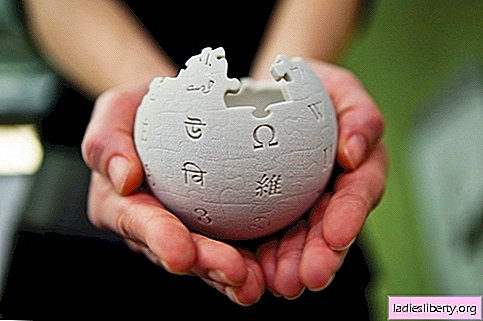
Holidays January 15
Croatia International Recognition Day
After the collapse of the Yugoslav Union, Croatia was one of the few union republics that managed to maintain peace on its land. On January 15, a number of EU countries recognized the young country. Soon Croatia will be recognized by Austria, the Bulgarian Republic, Canada, the Polish Republic and the Swiss Confederation. But the first country to recognize and welcome the new state was Iceland. On January 13, the Vatican and Italy recognized the Croatian Republic. Until the end of January, a number of states will recognize Croatia, among them Finland, the Romanian Republic, Albania, the Republic of Bosnia and Herzegovina, the Brazilian states, Paraguay and the Bolivian Republic. The first Asian countries to recognize the Republic of Croatia were Turkey and Iran. Soon, Egypt recognized it. In May 1991, Croatia was admitted to the UN as a full member. After Croatia became a member of the UN, it was recognized by the Russian Federation, Japan, the United States and China. Since that time, Croatia has 48 embassies in different countries of the world. Croatia has six permanent missions in various significant international organizations. The Government of the Croatian Republic maintains diplomatic contacts with 120 countries of the world. January 15 in Croatia is a major public holiday, not inferior in importance to the Independence Day of Croatia.
Wikipedia Foundation Day
A unique universal encyclopedia available to all users of the Internet network. Information in the encyclopedia is available in many languages of the world. The amount of information contained in Wikipedia is the most comprehensive thematic and information source. Another advantage of the virtual encyclopedia is its availability, any Internet network user can visit Wikipedia without restriction and get the necessary and useful information from there. The predecessor of Wikipedia is the so-called Nupedia, which in 2001 was improved and simplified, as a result of which modern Wikipedia appeared. In May of that year, the first language modules were introduced into the Wikipedia resource. At the moment, the encyclopedia is able to display its articles in 260 languages of the world. The information and thematic volume of the encyclopedia is growing steadily, Wikipedia is one of the ten most beloved and most visited sites in the world. A unique feature of Wikipedia is the professionalism and objectivity of the information posted on it. Indeed, not only ordinary users, but also eminent scientists and public figures take part in editing the encyclopedia. The Russian-language part of the encyclopedia has more than half a million articles, which is seven times more than the Great Soviet Encyclopedia. The basic principle of Wikipedia is the neutrality and objectivity of information. January 15 is considered the foundation day of Wikipedia.
Day of the Investigative Committee of the Russian Federation
A new holiday was established on January 15 on the basis of the law "On the Investigative Committee of the Russian Federation." The Investigative Committee was called upon to work outside the prosecution system. The idea of separating the investigative department from other law enforcement agencies was hatched by the emperor Peter. Then the king carried out a radical judicial reform, as a result of which it was possible to divide the investigative actions into preliminary and judicial proceedings. Since 2007, the Investigative Committee, being in the structure of the prosecutorial service, has become relatively independent of the prosecutor's supervision department. The law of January 15, 2011 streamlined the activities of the investigative committee and separated it from the prosecution authorities. The law clearly established that the direct head of the Investigative Committee of the Russian Federation is the President of Russia. Thus, the new federal service is not included in any structure of law enforcement agencies and reports directly to the head of state. Thus, the separation of the bodies of preliminary inquiry, prosecutorial supervision and judicial execution makes a significant contribution to the reform of the legal system of the state. Law on the Investigative Committee, an example of a real state fight against corruption in law enforcement agencies. In addition, the independent activities of the new state structure are able to prevent abuses associated with the implementation of law enforcement activities by various entities of the legal field.
Day of St. Seraphim of Sarov
On this day, the Orthodox Church honors the memory of Seraphim of Sarov. All Orthodox Christians celebrate the performance of Seraphim. Today, throughout Russia, in churches and monasteries, clergymen perform celebratory services, and men who are named after a saint celebrate their namesday. Seraphim from childhood dreamed of the life of a monk, when he was 24 years old, he went to the Sarov desert. He lived for a long time in the monastery, and the abbot of the monastery blessed him to build a cell in a dense forest, which was 3 kilometers from the monastery. Seraphim lived in this cell for 16 years, and came to the monastery only on Sunday and on holidays. When he lived in the forest he was attacked with the purpose of robbery, and was severely beaten, because of this he became hunched, this is how he is depicted on the icons. Seraphim forgave the people who crippled him and asked that they not be punished for this. When the reverend secluded himself, he constantly prayed on a stone. During the day he recited prayers in his cell, and at night he went to pray in the forest. Some time later, he declared a vow of silence for three whole years, at which time he did not even visit the monastery. After spending this time in prayer and repentance, Seraphim was endowed with the gift of insight and wonderworking. After retreat, he began to accept all those in need of advice and comfort. Swarovsky did not even heal with a word, but with the love and joy that emanated from him. The seraphim was respected by the people, people from all over the country came to him, only to listen to sermons about spiritual life. After the death of the saint, they began to venerate even more. Eyewitnesses say that miracles often occur on his grave. Currently, the remains of the saint are in the Seraphim-Diveevo convent. Every year on the day of the memory of Seraphim Swarovsky solemn services are held, the Patriarch takes part in them, and a great many pilgrims come together.
January 15th in the folk calendar
Sylvester Day, or Chicken Feast
This day was named after a church holiday called St. Sylvester Day. This pope lived in the fourth century and became famous thanks to the created miracle. There is a legend that tells that Sylvester caught a sea serpent, and in this case prevented the end of the world.
Also on this day in antiquity the Chicken Festival was celebrated. On this day, it was a tradition to clean the chicken coops. In ancient Russia, according to legend, a black rooster, who was five years old, must lay an egg from which the basilisk snake will be born. The peasants tried to protect the chicken coop from evil spirits, hung in it a "chicken" god, which was a black stone with a hole. In addition, chicken coops should be fumigated with tar and elecampane, it was believed that this protects chickens from blindness and drives away fever. On this holiday, children were pampered with new toys, clay cockerels. On this day there was a custom of fortune telling on the bulbs. It was necessary to peel twelve onions, put a little salt on each onion, and leave them on the stove until morning. In the morning, they checked the bulbs, what was the wet bulb, there will be a lot of rain that month. There were other signs related to the weather. It was customary to look at the month at night, if the month had sharp and bright ends, then there would be a wind; if the ends are steep, you need to wait for the frost; sloping horns predicted inclement weather. When the peasants noticed flying magpies near their houses, it was to a blizzard.
Historical events of January 15
January 15, 2006 Chile becomes president
In Chile, the head of state is endowed with truly “tsarist” powers, he simultaneously leads the state and government, single-handedly forms the cabinet of ministers, has the primary right of legislative initiative in the country's parliament, and is the supreme commander in chief of the Chilean army. Since 2006, the head of state has been elected by popular vote. According to the Constitution of the country, the term of office of the President of Chile is limited to four years, the same person can not re-become president. In 2006, the first president of Chile was a woman, Michelle Bachelet, daughter of a Chilean army general who died during the dictatorship of Augusto Pinochet. From 1994 to 2000, Michelle Bachelet is the official consultant to WHO, while also serving as adviser to the Minister of Health. In 2000, she was appointed Minister of Health. And in 2002, President Ricardo Lagos appointed Michelle Bachelet the Minister of Defense of Chile. In 2004, the Union of Democratic Parties nominated Michelle Bachelet as a presidential candidate. Bachelet built her election program on reformist ideas and social slogans. She confidently won the election and immediately joined the daily work of the head of state. Michelle's presidency was marked by large and successful reforms in the field of healthcare, education, and pension policy. President Bachelet managed to narrow the gap between the very rich and the very poor, and successful economic policies helped lay the foundations for the formation of a middle class in the country. It is noteworthy that by the end of his reign, Michelle Bachelet was supported by almost 80% of the country's population. In general, the rule of Michelle Bachelet had a positive impact on the development of the Chilean state.
January 15, 1955 Chinese leadership adopts nuclear weapons development program
In 1954, at a military training ground in the southern Urals region, military exercises were carried out on which an atomic bomb was used. The purpose of the exercise was to clarify the possibility of breaking through the enemy's defensive fortifications in the context of the use of nuclear weapons. Training maneuvers were prepared and conducted under the leadership of G.K. Zhukov. About 45,000 soldiers and officers, 600 tanks and self-propelled guns, more than five hundred guns and mortars took part in nuclear exercises. Parts of the air force and military medical services also took part in the exercises. Representatives of the military ministries and departments of the countries of the allies of the USSR observed the course of the exercises. The Minister of Defense of the People's Republic of China, Peng Dehuai and Vice-President of the People's Republic of China Zhu De, were amazed at the scale of the exercises. But a special impression on the Chinese guests was made by the atomic bomb explosion. The Chinese leadership set out to get new weapons at all costs. However, the leadership of the USSR did not want to give such a powerful weapon to the not entirely trustworthy Chinese leadership. The only thing the USSR helped the PRC to do was to send military and scientific consultants to China, who were supposed to help Chinese specialists lay the foundation for the development of the nuclear military industry. In connection with the refusal of the USSR to transfer to China the nuclear military arsenal, the leadership of China, at a special meeting of the CPC Central Committee, it decided to develop and create its own nuclear weapons.
January 15, 1700 Emperor Peter I ordered the boyars and nobles to wear European clothes
The accession of Peter was a turning point for Russia. A reformer by nature, he dreamed of transforming Russia following the example of European advanced states. The reign of Peter was marked by the flourishing of Russian science and culture, the creation of a new system of educational and scientific institutions. To create a new high-quality education system, the state sent the most gifted compatriots to study abroad. In the Petrine era, the life of the noble class changed significantly. The first innovation of Peter, was the ban on wearing beards, those who opposed the decree of the king, were required to pay a very high tax for wearing a beard. Tax quotas for wearing a beard were established, for example, merchants had to pay 100 rubles a year, the nobility paid 60 rubles, and city dwellers 30 rubles each. Peasants at the entrance to the city and at the exit from it paid one penny for the beard. Only the clergy were allowed to wear beards without paying for it. Over time, merchants, nobles and citizens did not want to suffer losses due to wearing a beard and gradually began to abandon this ancient tradition. On January 15, 1700, Tsar Peter ordered the boyars and nobles to change their old Russian clothes to comfortable, according to Peter, European costumes. Women were also credited with wearing European clothes and strictly following foreign fashions. Thanks to Peter's reforms, women ceased to be recluses in their towers. The king ordered the organization of entertainment meetings, "assemblies", which were held almost every evening, in the houses of the noble nobility. At balls and festivals, women were required to participate. Many of Peter's reforms were not accepted by conservative Russian society, but no one dared to oppose the tsar, because Peter was merciless in anger and quick to reprisal.
January 15, 1961 riots in Krasnodar
The economic situation of the Soviet state in the early 60s of the last century was very unsatisfactory. The ill-conceived and ineffective reforms of the Soviet leadership, led by Nikita Khrushchev, were hostile to the population of the USSR, which ultimately led to mass unrest. In January 1961, an anti-government uprising broke out in Krasnodar. The impetus for the riots was the incident at the military commandant's office, where a ten-year-old boy died. The deceased teenager was put on a stretcher and brought to the building of the regional committee of the CPSU, here the indignant people organized a spontaneous rally, activists who spoke at the meeting, blamed the negligent Soviet authorities for all the troubles of the people. The rebels demanded to punish those responsible for the death of a ten-year-old boy and assign his family a life-time monetary compensation. The emotional intensity of the rally increased, and soon the protesters broke into the building of the regional committee of the CPSU. The angry crowd began to rob everything that could be carried away, and what could not be carried out, simply smashed to smithereens. The rioters carried typewriters, televisions, carpets and dishes, books, curtains and curtains. Further, the rebels entered the office of the first secretary of the regional committee of the party and tried to contact Khrushchev personally through government communications, but they did not succeed. With the onset of the evening, the uprising began to subside, and people began to disperse home, leaflets with anti-Soviet slogans and appeals were massively pasted around the city. The next day there were several more cases of local popular protests, but they were not so massive and did not have a large aggressive charge. After the end of the riots, the authorities began to identify and arrest the instigators of the uprising, but several dozen people were arrested and convicted. The leadership of the USSR Ministry of Internal Affairs carried out mass lustration in the internal affairs bodies of the Krasnodar Territory.
January 15, 1965 project "Chagan"
A thermonuclear explosion carried out for industrial and commercial purposes near the Semipalatinsk test site.According to the projects of Soviet scientists, the craters formed from nuclear explosions could serve as original reservoirs for storing water. As a result of an atomic explosion, the bottom of the crater was melted and the water accumulated in it did not go into the soil layers, and the small area of the water mirror prevented intensive evaporation. It was planned to use the stored water for the needs of irrigation and cattle breeding. On the territory of the Kazakh USSR, it was planned to create about forty such technogenic reservoirs. The scientists were given the task of carrying out the so-called "pure nuclear explosion", in which the radioactive contamination of the nearby territory would be minimal. The purity of the explosion reached 94%, which was much higher than that of a similar project carried out by the Americans. An explosive device was laid in the Chagan River basin, at a depth of 178 meters. On January 15, an explosion was carried out, which threw several million tons of soil into the atmosphere, the height of the explosive cloud reached 5 kilometers. After the explosion, a funnel formed with a diameter of half a kilometer and a depth of 100 meters. The bed of the nearby Chagan River was blocked by rock fragments. The resulting crater was subsequently filled with water and turned into a utility reservoir.
Born on January 15
Alexander Griboedov (1795-1829), Russian poet and playwright
As you know, the poet was born in Moscow, in an old noble family. Parents gave Alexander a wonderful home education. It is surprising that at the age of 11 he went to study at Moscow University, already in 1810 he successfully graduated from the law and verbal faculties. The guy was fluent in foreign languages. Two years later, he joined the army as a volunteer, but did not take part in hostilities. Five years later, Griboedov was admitted to the College of Foreign Affairs, he served in St. Petersburg. At that time, he met future Decembrists. At the same time, he writes his first literary works-comedies. In 1818, Griboedov was given the post of secretary of the Russian mission in Tehran, and four years later he was appointed secretary for the diplomatic part of General A.P. Yermolov, commander of Russian troops in the Caucasus and was also an ambassador to Tehran. Griboedov moved to Tbilisi, and there he began to write his main work, the comedy "Woe from Wit." The robot was completed in 1824 in St. Petersburg. At that time, censorship was forbidden to publish the text of his play, only small passages were printed in 1825 in the press. In the same year, Alexander returned to the Caucasus, but there he was arrested and taken to St. Petersburg, this was due to the Decembrist uprising. Fortunately, it was not possible to prove that Griboedov was involved in the conspiracy, and he returned back to Georgia. In 1828, Alexander was appointed ambassador to Tehran. While he was getting there, he stayed for several months in Georgia and there he married the princess, who was 16 years old. Alexander's family happiness quickly ended. During the rout of the Russian mission in Tehran, Muslim fanatics killed Griboedov.
Sofya Kovalevskaya (1850-1891), mathematician, poetess
Kovalevskaya was born on the fifteenth of January in Moscow. There is a legend that tells that during the renovation of the house, the estate of Sonya's parents did not have enough wallpaper for one wall of the children's room. Then she was pasted with leaves from a mathematical textbook. Little Sophia with interest examined the mysterious badges, and tried to understand the written phrases. It all so engraved in the girl’s memory that when many years passed, the math teacher was simply amazed how Sonya could learn the most complicated formulas so quickly. One evening in Berlin, a young girl knocked on the door of the house of the famous mathematician Weierstrass. She very much asked the famous scientist to give her some mathematics lessons. The scientist wanted to get rid of her faster and asked her some very difficult tasks, it was already dark and the scientist could not even consider the girl. A week passed and the girl came again and brought with her the solved problems. She subdued the old scientist with her mind and charm. Since then, Sofia Kovalevskaya has become a favorite student of the old mathematician. Sophia brilliantly graduated from German University and received a specialist diploma. She had a dream to work in Russia. In 1883, she received an invitation from Sweden, she was offered to give mathematical lectures at Stockholm University, and Sophia happily agreed. Within two months, she learned Swedish, and began to lecture. Thanks to her work, this woman became the first Russian woman to receive the title of professor. Her mathematical works were known to the whole educated world.
Kovalevskaya was still known as a writer. When her creative life was at the dawn of her strength, Sophia left our world, died of pneumonia. Thanks to the efforts of Russian women, a monument was erected in Stockholm in honor of Sofia Kovalevskaya.
Evgeny Vesnik (1923-2009), Soviet actor
Born January 15, 1923 in Petrograd, in the family of a Bolshevik functionary. In the late 30s, the Vesnik family was repressed, their father was shot, and his mother was sent to Kazakhstan. Little Zhenya was placed in an orphanage. During the Great Patriotic War, Vesnik commander of an artillery platoon with the rank of second lieutenant. For the courage shown in the battles, Vesnik is awarded the Order of the Red Star and the medal "For Courage". After the war, Eugene at the first attempt enters the Shchepkin Theater School. After graduating from college, the troupe of the Stanislavsky Theater takes under his wing the young actor. In 1954, Vesnik transferred to the Satire Theater, and in 1963 he finally settled in the small academic theater. He first appeared in films in 1955. During his creative life, the actor starred in seventy films. In the 90s, he starred a little, he worked mainly on a contractual system. He was invited to theaters as a director of performances and musicals. Evgeny Yakovlevich took an active part in various television shows. He wrote scripts for television and radio, voiced cartoons. In the last years of his life, Yevgeny Yakovlevich was ill a lot, suffered severe pneumonia, and a few years later, and a stroke. He was buried in Moscow at the Vagankovsky cemetery.
Aristotle Onassis (1906-1975), Greek billionaire
Onassis was born in Turkey in Izmir in a family of industrialists. During the Greco-Turkish conflict, the Onassis family left for Greece, and Aristotle was sent to Argentina, in search of a happy life. Having settled in Buenos Aires, Onassis, in the beginning worked as a dispatcher in the seaport. With the help of friends, he began to engage in a small tobacco business and in two years he was able to earn his first $ 100,000. The commercial talent of Onassis was noticed by the Argentine and Greek governments; Onassis was made a trade consul. He successfully concluded a series of trade agreements between Argentina and Greece. On the tobacco trade, he earned his first $ 1,000,000. In 1923, a young millionaire could afford to buy six cargo ships. Towards the end of the 1930s, Onassis built a large cargo tanker, and by the beginning of the war acquired 2 more larger tankers. The trading empire of Onassis grew, and his merchant fleet increased. In the 50s, the businessman bought 17 new, modern tankers. In 1953, Onassis acquired a controlling stake in Societe de Baines de Mer. He also owned Greek national airlines. Aristotle Onassis was married three times, his last wife was the widow of John F. Kennedy, Jacqueline Kennedy.
Maria Forescu (1875-1943), opera singer, actress
Maria Fullenbaum (pseudonym Forescu) was born in January 1875 in Ukraine. She graduated from a female gymnasium in Prague. After the gymnasium, Maria became interested in theatrical creativity. She took private acting and vocal lessons. In the late 1890s, Maria Forescu decided to start a singing career. She successfully performed in theaters in Vienna and very soon became a popular opera singer. Maria is actively touring European cities, and also visits Petersburg. Since 1911, Maria began acting in silent films. In the early 1920s, Maria left the theater career and devoted herself completely to cinema. With the opening of the era of sound cinema, Maria continued to act, although her main roles were: maidservants, elderly people, secular ladies. In 1933, the sunset of her career came. A Nazi group came to power in Germany. Having eliminated Jewish traces in the actress’s related roots, the Nazis deprived Mary of her work and career. Having fallen into disgrace to the Nazi authorities, the actress lived quietly and solitary in Berlin, before her arrest in 1943. Arresting the actress, she was sent to the Buchenwald concentration camp, where she died tragically. The memory of the legendary actress, immortalized in books, memoirs and films, people love and remember her.
January 15th
Kuzma, Dmitry, Mark, Sergey, Peter.











